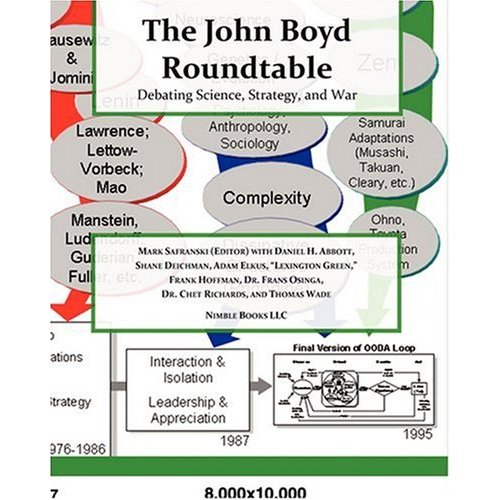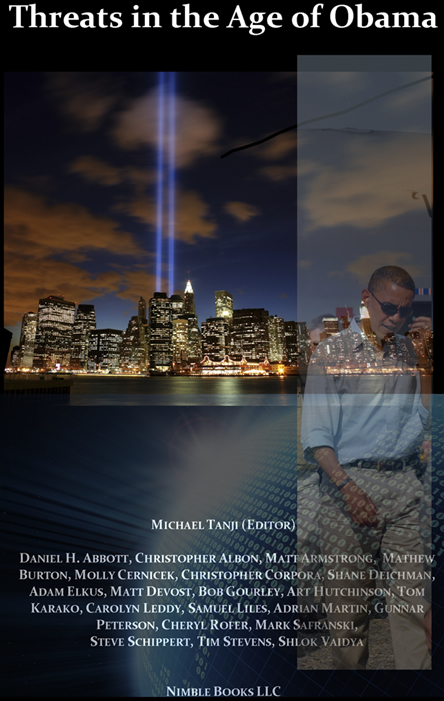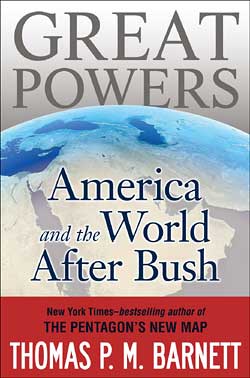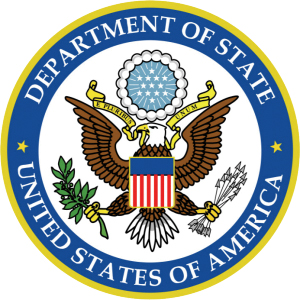Dr. Barnett made an important appearance today to testify before the House Armed Services Committee on the future of the U.S. Navy and the global strategic environment it faces:
Tom’s testimony today
I appear before the subcommittee today to provide my professional analysis of the current global security environment and future conflict trends, concentrating on how accurately–in my opinion–America’s naval services address both in  their strategic vision and force-structure planning. As has been the case throughout my two decades of working for, and with, the Department of Navy, current procurement plans portend a “train wreck” between desired fleet size and likely future budget levels dedicated to shipbuilding. I am neither surprised nor dismayed by this current mismatch, for it reflects the inherent tension between the Department’s continuing desire to maintain some suitable portion of its legacy force and its more recent impulse toward adapting itself to the far more prosaic tasks of integrating globalization’s “frontier areas”–as I like to call them–as part of our nation’s decades-long effort to play bodyguard to the global economy’s advance, as well as defeat its enemies in the “long war against violent extremism” following 9/11. Right now, this tension is mirrored throughout the Defense Department as a whole: between what Secretary Gates has defined as the “next-war-itis” crowd (primarily Air Force and Navy) and those left with the ever-growing burdens of the long war–namely, the Army and Marines.
their strategic vision and force-structure planning. As has been the case throughout my two decades of working for, and with, the Department of Navy, current procurement plans portend a “train wreck” between desired fleet size and likely future budget levels dedicated to shipbuilding. I am neither surprised nor dismayed by this current mismatch, for it reflects the inherent tension between the Department’s continuing desire to maintain some suitable portion of its legacy force and its more recent impulse toward adapting itself to the far more prosaic tasks of integrating globalization’s “frontier areas”–as I like to call them–as part of our nation’s decades-long effort to play bodyguard to the global economy’s advance, as well as defeat its enemies in the “long war against violent extremism” following 9/11. Right now, this tension is mirrored throughout the Defense Department as a whole: between what Secretary Gates has defined as the “next-war-itis” crowd (primarily Air Force and Navy) and those left with the ever-growing burdens of the long war–namely, the Army and Marines.
….As someone who helped write the Department of Navy’s white paper, …From the Sea, in the early 1990s and has spent the last decade arguing that America’s grand strategy should center on fostering globalization’s advance, I greatly welcome the Department’s 2007 Maritime Strategic Concept that stated:
United State seapower will be globally postured to secure our homeland and citizens from direct attack and to advance our interests around the world. As our security and prosperity are inextricably linked with those of others, U.S. maritime forces will be deployed to protect and sustain the peaceful global system comprised of interdependent networks of trade, finance, information, law, people and governance.
Rather than merely focusing on whatever line-up of rogue powers constitutes today’s most pressing security threats, the Department’s strategic concept locates it operational center of gravity amidst the most pervasive and persistently revolutionary dynamics associated with globalization’s advance around the planet, for it is primarily in those frontier-like regions currently experiencing heightened levels of integration with the global economy (increasingly as the result of Asian economic activity, not Western) that we locate virtually all of the mass violence and instability in the system.
Moreover, this strategic bias toward globalization’s Gap regions (e.g., a continuous posturing of “credible combat power” in the Western Pacific and the Arabian Gulf/Indian Ocean) and SysAdmin-style operations there makes eminent sense in a time horizon likely to witness the disappearance of the three major-war scenarios that currently justify our nation’s continued funding of our Leviathan force–namely, China-Taiwan, Iran, and North Korea. First, the Taiwan scenario increasingly bleeds plausibility as that island state seeks a peace treaty with the mainland and proceeds in its course of economic integration with China. Second, as Iran moves ever closer to achieving an A-to-Z nuclear weapon capability, America finds itself effectively deterred from major war with that regime (even as Israel will likely make a show–largely futile–of delaying this achievement through conventional strikes sometime in the next 12 months). Meanwhile, the six-party talks on North Korea have effectively demystified any potential great-power war scenarios stemming from that regime’s eventual collapse, as America now focuses largely on the question of “loose nukes” and China fears only that Pyongyang’s political demise might reflect badly on continued “communist” rule in Beijing–hardly the makings of World War III.
Read the rest here.
Tom has probably made the heads of many senior admirals explode today. Though, it must be said, this is unlikely to be the first time that has happened and everything Dr. Barnett said this morning was perfectly consistent with what he’s been saying and writing for years, as he made clear in his statement. It’s more where he was saying it and to whom. Coming down so hard in Congressional testimony in favor of expanding the Navy’s capacity at littoral operations at the expense of capital ship building and submarines is waving a red flag at the “Big War” crowd while executing a taunting, end-zone dance.
Ok, I exaggerated that last part, but from the text, Tom gave a very strong signal to the Committee as to where the Navy should be headed in coming years.
UPDATE!!:
Evidently, Tom also caused the heads of committee members to explode as well. Galrahn was there at the hearing and had this anecdote:
My favorite moment was during Thomas Barnett’s opening statement, which I thought was really good. Dr. Barnett said something along the lines of “I want allies with million man armies and I want them to be ready to kill people,” which is strategically exactly right.
Well, what the audio and video won’t show is the reaction by Maine Congresswoman Chellie Pingree (D), who looked to me like she was about to either feint or have a heart attack when Barnett said that. It was a priceless moment of facial expressions as she struggled to cope with the idea he was expressing. Honestly, I’m still laughing writing about it here. It was only afterward I was reminded that she is co-sponsor in the creation of a new government organization.
The Department of Peace.
Good. The whole concept of a Department of Peace amounts to institutionalizing antiwar activists on the Federal payroll to try and obstruct foreign policy and erode national security for the benefit of unfriendly and undemocratic foreign states. If Bashir Assad and Hugo Chavez want foreign agents to lobby Congress, they can hire K Street lawyers like everyone else; we don’t need to have U.S. taxpayers footing the bill to promote far Left political causes.
Tom also weighed in on his blog on the experience:
Questions from members are extremely specific to their pet causes. I considered that exchange largely to be a showy waste of time.
Only sparks: I raise issue of Navy needing to accept more tactical risk if they want to influence events ashore more, referencing LCS. I get a small lecture about “sons and daughters” from Taylor. I refrain from mentioning my family members now in Iraq, considering that a counter-grandstanding move better avoided.
Instead, I counter with logic of Army-Marine COIN: you accept more risk when you get closer in–plain and simple. The Navy has already perfected its force structure in terms of largely rendering itself casualty-free and irrelevant to the long war, so it’s just a question of “whose sons and daughters” bear the brunt.
Taylor thanks me for a response he clearly had no expectation of triggering.
Then Thompson, who panders a grace bordering on the sublime (decrying costs in aggregate but praising individual systems and platforms), gets pissed when I downplay the intell capture argument offered by Seawolf sub proponents (Oh, to need $2.2B stealthy platforms to spy off Syria’s coast! His example, not mine). He laments that it’s too bad that the American public can’t truly know how value such collection is! This is the classic insider put down: If only you knew the secrets I know! Then you’d not dare to question my porkish logic!
Heh.

– Mark Safranski (Ed.)




– Michael Tanji (Ed.)
– Thomas P.M. Barnett
– John Robb
– Frans Osinga




by Howard Bloom
by Richard Nisbett
by Jeffrey Carr
by Samuel Logan

 House staffers, determined to protect the authority of the POTUS over foreign policy and the bureaucracy at State. We have seen this struggle in the past with Al Haig, Cyrus Vance, William Rogers, Cordell Hull, Robert Lansing and other SECSTATEs who sooner or later found themselves sidelined and excluded from key foreign policy decisions by the president. However, this is not just a case of Obama insiders distrusting and attempting to “box in” the Clintons as political rivals, by using other high profile players ( though that has been done to Clinton).
House staffers, determined to protect the authority of the POTUS over foreign policy and the bureaucracy at State. We have seen this struggle in the past with Al Haig, Cyrus Vance, William Rogers, Cordell Hull, Robert Lansing and other SECSTATEs who sooner or later found themselves sidelined and excluded from key foreign policy decisions by the president. However, this is not just a case of Obama insiders distrusting and attempting to “box in” the Clintons as political rivals, by using other high profile players ( though that has been done to Clinton). right, requires a sizable budget increase, perhaps upwards of 50 %. This cut off the nose to spite our foreign policy face niggardliness by the legislature is not new. Go back and read the memoirs of diplomats of a century ago. They wrestled with the same budgetary penury as State has to deal with today; even during WWII when you’d have thought money would be no object, Congress stiffed diplomats in hazardous, war-zone, postings on their food allowances. The foreign service was long the preserve of wealthy, well-connected, white men because back in the day, only they could afford to live on a State Department salary.
right, requires a sizable budget increase, perhaps upwards of 50 %. This cut off the nose to spite our foreign policy face niggardliness by the legislature is not new. Go back and read the memoirs of diplomats of a century ago. They wrestled with the same budgetary penury as State has to deal with today; even during WWII when you’d have thought money would be no object, Congress stiffed diplomats in hazardous, war-zone, postings on their food allowances. The foreign service was long the preserve of wealthy, well-connected, white men because back in the day, only they could afford to live on a State Department salary. their strategic vision and force-structure planning. As has been the case throughout my two decades of working for, and with, the Department of Navy, current procurement plans portend a “train wreck” between desired fleet size and likely future budget levels dedicated to shipbuilding. I am neither surprised nor dismayed by this current mismatch, for it reflects the inherent tension between the Department’s continuing desire to maintain some suitable portion of its legacy force and its more recent impulse toward adapting itself to the far more prosaic tasks of integrating globalization’s “frontier areas”–as I like to call them–as part of our nation’s decades-long effort to play bodyguard to the global economy’s advance, as well as defeat its enemies in the “long war against violent extremism” following 9/11. Right now, this tension is mirrored throughout the Defense Department as a whole: between what Secretary Gates has defined as the “next-war-itis” crowd (primarily Air Force and Navy) and those left with the ever-growing burdens of the long war–namely, the Army and Marines.
their strategic vision and force-structure planning. As has been the case throughout my two decades of working for, and with, the Department of Navy, current procurement plans portend a “train wreck” between desired fleet size and likely future budget levels dedicated to shipbuilding. I am neither surprised nor dismayed by this current mismatch, for it reflects the inherent tension between the Department’s continuing desire to maintain some suitable portion of its legacy force and its more recent impulse toward adapting itself to the far more prosaic tasks of integrating globalization’s “frontier areas”–as I like to call them–as part of our nation’s decades-long effort to play bodyguard to the global economy’s advance, as well as defeat its enemies in the “long war against violent extremism” following 9/11. Right now, this tension is mirrored throughout the Defense Department as a whole: between what Secretary Gates has defined as the “next-war-itis” crowd (primarily Air Force and Navy) and those left with the ever-growing burdens of the long war–namely, the Army and Marines. 

